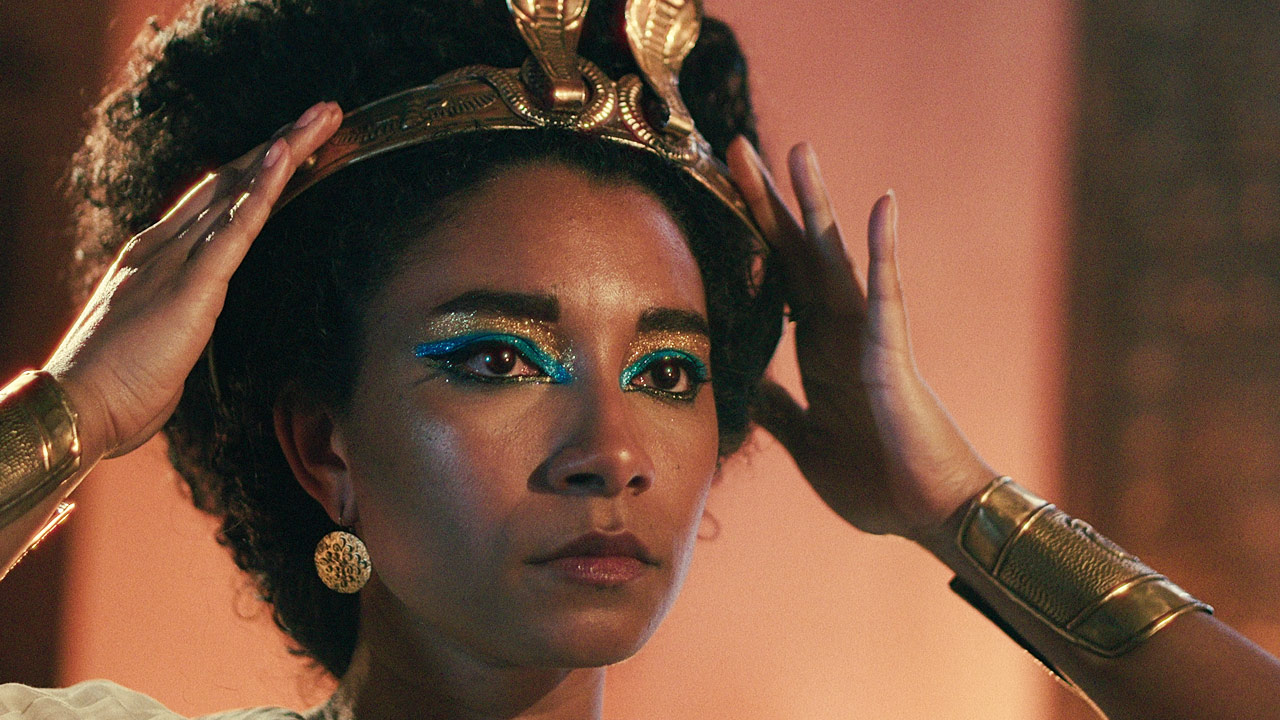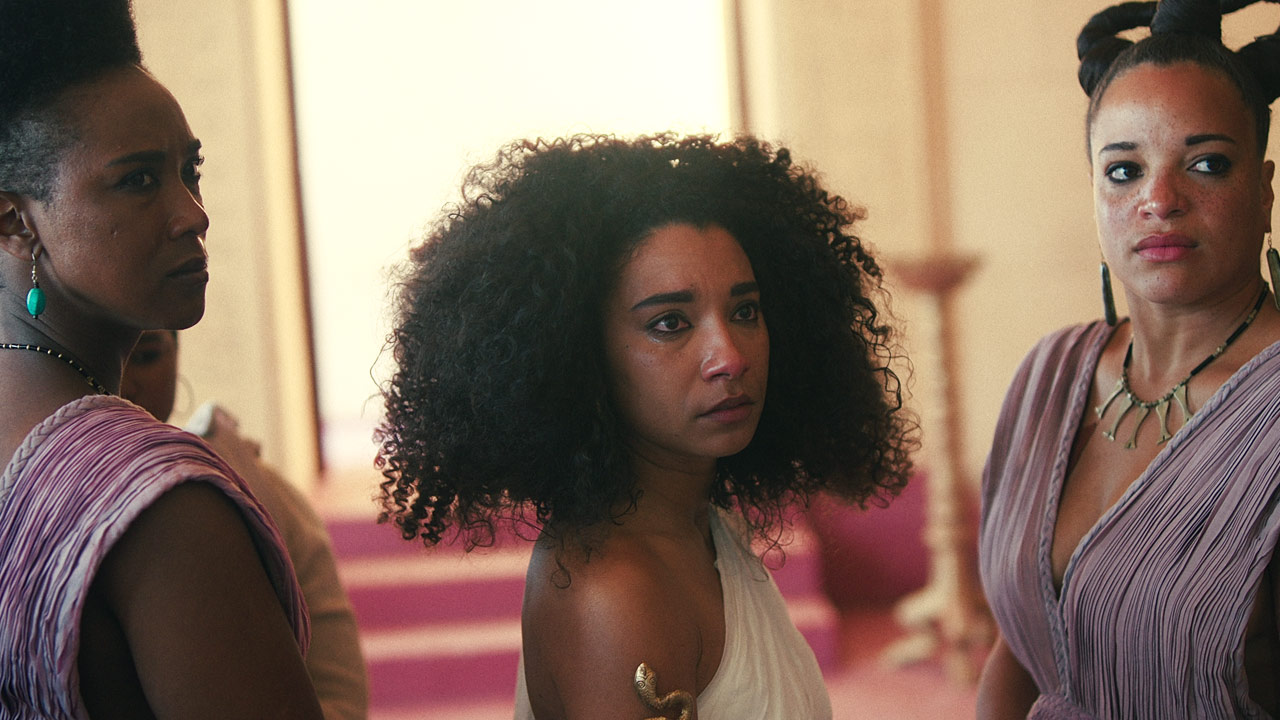What can we learn from Netflix’s Queen Cleopatra controversy?

To Luke Buckmaster, “the furore over Cleopatra’s skin colour” in Netflix’s poorly-received docuseries Queen Cleopatra “distracts us from her legacy”—and raises questions of how malleable representation can be in telling true historical stories.
The recent release of David Lowery’s Peter Pan & Wendy prompted a depressingly familiar response from the “anti-woke” brigade. Tinkerbell, the iconic lil fairy created by playwright J.M. Barrie, was for the first time played by a person of colour—Yara Shahidi. This sparked a backlash from a demographic I never knew existed: Tinkerbell traditionalists, outraged that their favourite purveyor of pixie dust could be played by a non-white actor. And by “Tinkerbell traditionalists” I of course mean people being racist—holding onto, of all things, the made-up heritage of a made-up character from a fairytale world. A similar backlash greeted the news that Halle Bailey will play Ariel in Disney’s The Little Mermaid remake.
It seems insane to point out that fairies and mermaids can be any gender, any skin colour, any temperament the artist chooses. Who cares? Pop culture is always repurposing old creations, making them relevant anew in an ever-changing zeitgeist. Lowery’s decision to introduce more diversity into Peter Pan & Wendy’s cast, including Shahidi as Tinkerbell and an actor with Down Syndrome as one of Lost Boys, makes the film more representative of different aspects of human experience, and imparts a message that these stories are for everybody.
Given all this, it’s hardly a surprise that Netflix’s new Queen Cleopatra series generated a maelstrom of controversy by casting a black woman, Adele James, as the legendary last pharaoh of Egypt (who many believe had olive or light brown complexion). In their own era, uber-famous historical figures such as Cleopatra, Julius Caesar, Joan of Arc and Jesus Christ were real leaders and real people. Eventually they all become fridge magnets and DALL-E input prompts: legends unmoored from space and time, tumbling through pop culture’s infinite cycle. From this perspective it’s not just perfectly fine but inevitable that Cleopatra would one day be played by a black woman, just as she’s been played by white women (including Elizabeth Taylor), just as she’s been played by white boys.
You read that right: Cleopatra, in the Shakespearean era, was played by white boys. Something tells me the anti-woke brigade’s ancestors weren’t filling the town square with protests about the historical inaccuracies of this casting decision. Something tells me, also, that many of the same people kvetching about new iterations of Tinkerbell, Ariel, and the Queen of Egypt may have, on their walls, a picture of a white Jesus Christ. Or at least have seen pictures of a white Jesus Christ and not been outraged. This is relevant because, while historians don’t know for sure what colour Cleopatra’s skin was, they do know that Christ was a brown-skinned, Middle Eastern Jew. Yet time and time again throughout history he’s been portrayed as a white man.
Where the Queen Cleopatra controversy differs from the Disney examples is that the series explores a real-life subject and is presented and categorized as a documentary. The implicit expectation that documentaries should aspire for historical accuracy, coupled with a widespread belief that Cleopatra was not black, immediately puts its director, Tina Gharavi, on the backfoot, compelled to acknowledge the elephant in the room and defend her casting decision (with James playing the pharaoh in lengthy, often very dull dramatization sequences).

Professor. Shelley P. Haley, the first talking head to be featured, recounts a story about how, when she was a girl, her grandmother told her: “I don’t care what they tell you in school, Cleopatra was black.” It’s an unsettling quote to open a documentary with, implying historical facts are malleable and open to interpretation. This particular comment is also eerily close to the highly controversial idea that “black is a state of a mind,” famously perpetuated by Rachel Dolezal, a white woman whose choice to identify as black drew rage and mockery from the African American community.
The subject of Cleopatra’s racial heritage is better explored 15 minutes later. The point is made that nobody knows the subject’s exact racial heritage—nor, for certain, the identity of her mother or her grandmother. One interviewee notes that ancient Egyptians “would’ve had a variety of different complexions” and that their “skin colour ranged from black to pale brown.”
This connects to a very interesting point made by Professor Islam Issa (sadly—and perhaps unforgivably—the only Egyptian voice featured in the series) in an op-ed for Al Jazeera. He writes that “the largely binary racial terms being used today are anachronistic and can hardly be applied to Cleopatra’s context.” Ethnicities “weren’t really recorded in early Egyptian history,” Issa continues, and “in Alexandria especially, there was no normative race: genetic makeup was varied as people from across the region, from Europeans to Nubians, lived and married on its lands.”
Dr. Marian Makkar from RMIT University put it another way: “Skin colour did not matter to ancient Egyptians, nor does it matter in modern Egypt.” As did Toby Wilkinson from Cambridge: “There is no evidence that Cleopatra’s ethnicity was a matter of debate or interest during her own lifetime.” As did, addressing the reaction to Queen Cleopatra, Kenan Malik for The Guardian: “Much of the controversy arises from the desire to impose contemporary notions of race and identity, of whiteness and blackness, on an ancient world that thought very differently about such issues.”

This is a fascinating discussion: what a society looks like where race isn’t considered a matter of historical significance; where, in fact, skin colour doesn’t matter. That’s certainly not the world we live in today. One positive aspect of the Queen Cleopatra controversy is that it’s opened up this discussion. The big irony is that the casting of James in the titular role was intentionally provocative, clearing having—in the words of Greg Carr, Associate Professor of African Studies at Howard University—“everything to do with contemporary attitudes towards race and conversations about race and very little to do with Cleopatra.”
Since time immemorial women have had their achievements disregarded, undermined and underestimated, usually by men in control of the history books. The furore over Cleopatra’s skin colour distracts us from her legacy, her achievements, her impact. The silver lining is that legends of her stature are in a perpetual state of reinvention—another imperfect narrative inevitably just around the corner.
















